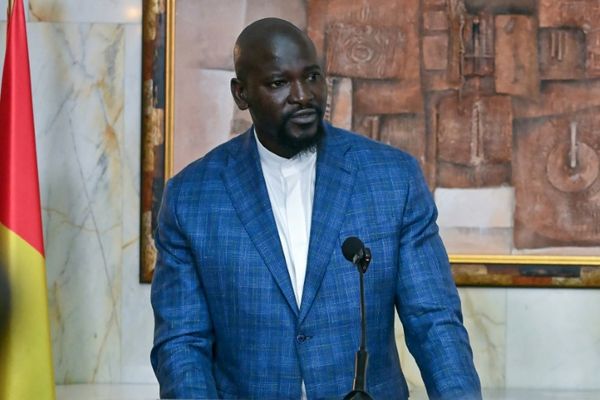DETROIT — Every Friday Shannon Holmes gathers with a group of women to talk about their week.
The chat is friendly yet serious. The 10 women are defendants who meet with Holmes, a 36th District judge, as part of a program aimed at setting them on a path to sober living and life off the streets.
The women of different ages, races and socio-economic backgrounds share a common bond: Most of them ended up in Detroit's Human Trafficking Court after being arrested for crimes like prostitution, accosting, soliciting or possession of narcotics, offenses typically fueled by drug addiction brought on, in some cases, by emotional problems or difficult family backgrounds.
"They were coming to me because they were drug-addicted," Holmes said. "I started realizing a person out here going from place to place selling sex for drugs or for shelter, whether it was against their will (or not) needs a different level of care ... more specialized care."
Last year just before the start of the COVID-19 pandemic 36th District Court, at Holmes' urging, partnered with Neighborhood Legal Services in Detroit to create a Human Trafficking Court.
In some of the cases, the women's lives had gone so far astray they had lost contact with family members, and relatives feared they were dead, Holmes said.
On a recent Friday, the women and Holmes spoke in a virtual meeting about the everyday victories of steering clear of drugs, alcohol and street life.
The mother of a young son celebrated the news of a new baby on the way and thanked Holmes for bringing her into the program.
The 34-year-old woman told Holmes the program saved her life, adding that she was doing well now but didn't know what might have happened to her without the judge's help.
Holmes told the woman, in a warm but official voice, "I'm excited for you. I want you to continue what you're doing."
The Human Trafficking Court docket is modeled after specialty courts such as Veterans Treatment Court, Drug Court and Mental Health Court that exist across Michigan. They are designed to address deep-seated issues that lead to repeated criminal offenses. Only defendants charged with nonviolent offenses are eligible for the human trafficking program.
Starting a Human Trafficking Court, a request Holmes made to Chief 36th District Court Chief Judge William McConico, was an idea that seemed natural, he said.
"These are victims who have in most cases been victimized their entire lives," McConico said. "A lot of times they have been put in situations where they may have committed a crime themselves as a way of supporting this lifestyle or making money for someone else. They may not be comfortable being on a regular docket, and they need special services."
McConico said defendants are able to receive housing, health screenings, mental health services, job training and specialized counseling. Through the partnership with Neighborhood Legal Services, defendants can also receive legal assistance including help reuniting with children.
McConico said specialized courts are a much-needed remedy in helping certain defendants.
"The justice cannot just be punitive. We have to get to the root of the problem," said McConico, adding that defendants are chosen for the Human Trafficking Court and other specialty courts.
"There are some red flags," he said. "There are certain things that the probation department as well as our docket management team look for ... certain signs and notifications in whether they will be shifted to a special docket."
Ordinarily, offenses such as drug possession or soliciting result in either a misdemeanor or felony charge and possible jail time. In Human Trafficking Court, the goal isn't criminal penalties but rather counseling and classes and hopefully graduation from the program, Holmes said. For some participants, the specialized services and counseling continue.
Six people have graduated from the program, Holmes said.
At a weekly meeting on May 21, a 42-year-old woman confessed to Holmes the resentment she felt when she was assigned to the program last year. She told the group she became involved in prostitution because of a drug habit that began 15 years ago and had been homeless.
She told Holmes she loved her and the program, and that she was in her 16th month of sobriety.
To help the women stay on track, Alice Jay, a survivor of human trafficking and the author of the book "Out of the Darkness: A Survivor's Story," has been assigned as a counselor for the women through Neighborhood Legal Services.
Jay said she was in the same place as the defendants until she was helped by a California judge when she refused to leave jail after an arrest in 1998. She didn't want to leave jail because she didn't want to be trafficked anymore and feared for her life.
The San Diego judge sentenced her to the House Of Metamorphosis, a behavior modification drug treatment center where she stayed for more than two years.
Jay said programs like the one Holmes is running are key in saving the lives of defendants, who most of the time are victims. And they are not always women. Jay said gay men and transgender women are becoming an increasing percentage of human trafficking victims. About 20% of homeless youth are LGBTQ and more than half of them are sexually exploited, according to a report prepared for the National Institutes of Health.
"Everybody has to be on board and see them as victims until proven otherwise," Jay said about individuals who are trafficked.
Jay, a member of Michigan's Human Trafficking Commission, said her experience in the court has helped her as well.
"I get a lot out of it. It helps me see that everything I've been through has not been in vain," Jay said. "It also allows me to see the strength of the women who have walked through what I've walked through."
Detroit's court is the fourth such effort in Michigan. The first was started in 2014 in Ypsilanti by 14B District Judge Charles Pope.
Michigan Supreme Court Justice Beth Clement, who oversees the state's specialty courts, said human trafficking courts are sorely needed programs.
The Phoenix Court was started in 2017 in Ingham County and a third program, Journey Court, is in place in the 29th Circuit Court in Clinton and Gratiot counties north of Lansing.
Michigan Supreme Court Justice Elizabeth Clement, who oversees the state's specialty courts program, said the effort began because state judges were seeing "the same defendants" appear before them frequently on the same offenses, and many needed specialized services.
"We have trauma in a lot of situations, but we know trauma experienced by human trafficking victims is so deep," said Clement. "There needs to be specialized services and really a safe place (for human trafficking defendants)."
Clement, who visited Ingham County's Phoenix Court, said she was impressed by what she saw in a program she said is sorely needed.
"These young women and, actually they had a young man there too, needed to be with other people that knew what they were experiencing and what they had been through. It offered them an opportunity to talk openly without feeling that they have to hide things from other people in the court.
"It can cause even more trauma because they are doing it in an open court setting."
She said specialized, or problem-solving courts, which number more than 199 in Michigan, are "incredibly successful in general." State Court Administrative Office officials are hoping to expand the effort to include a family treatment court program to address underlying problems that contribute to abuse and neglect issues.
Holmes said the human trafficking program has included women who were trafficked to the point that they were crack-addicted and completely broken. She said the program has helped them fix their lives.
"We've seen some women completely turn their lives around, and it's been a wonderful thing," Holmes said.







